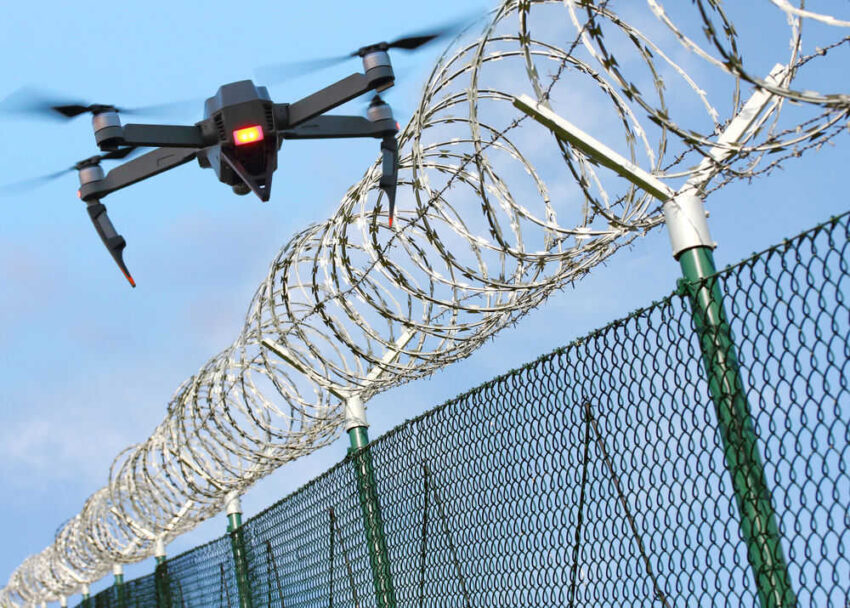(LibertySociety.com) – The secret weapon behind America’s military drone supremacy isn’t a secret at all, it’s a tiny Oregon town where cows outnumber people, but drones outmaneuver just about everything else in the sky.
At a Glance
- Pendleton UAS Test Range is the epicenter of U.S. military drone training and innovation.
- Over 65,000 drone operations have been supported, setting national precedents for speed and scale.
- Military, industry, and academia collaborate here, shaping next-generation drone warfare and technology.
- Pendleton’s economic growth and job market are surging thanks to this unlikely high-tech hub.
Pendleton: From Cattle Town to Drone Capital
In a plot twist worthy of Hollywood, Pendleton, Oregon, known for rodeos and wheat fields, has emerged as the command center for U.S. military drone dominance. Forget the old wild west; today, Pendleton’s horizons are dotted with high-tech unmanned aerial systems instead of tumbleweeds. The Pendleton UAS Test Range, run by the city itself, sprawls across 14,000 square miles of FAA-blessed sky, offering a “no red tape” playground for drone innovation. Here, the Department of Defense and defense contractors test, train, and dream up the future of warfare, all while the local economy gallops ahead faster than a prize steer at the Round-Up.
Pendleton’s transformation from sleepy outpost to national security linchpin wasn’t accidental. The city saw the drone boom coming and invested heavily in infrastructure: hangars, test pads, a UAS-friendly air control tower, and even a 160-acre industrial park designed for drone startups. The Secretary of Defense’s recent “Unleashing U.S. Military Drone Dominance” directive poured rocket fuel on these ambitions, positioning Pendleton as the go-to spot for rapid, secure, and affordable drone testing. This is no boutique operation, over 65,000 flights have launched from here, and the number keeps rising.
The Players and the Power Struggle
Pendleton’s drone empire is a collective endeavor, not a lone vigilante story. The City of Pendleton holds the keys, directing development and managing the test range. Steve Chrisman, Economic Development & Airport Director, is the town’s drone maestro, orchestrating deals and partnerships that make generals and CEOs alike take notice. DelMar Aerospace, a private defense firm, delivers modular training courses for everyone from rookie pilots to seasoned operators. The Department of Defense, always in the market for faster and better warfighting tech, is the biggest client and influencer. Defense contractors, the Oregon Army National Guard, and the Oregon UAS Accelerator round out the cast, each playing for high stakes: military readiness, economic growth, and technological leadership.
Relationships here are a delicate dance. The city has operational control, but DoD dollars and demands set the tempo. DelMar shapes the training curriculum, while the Accelerator nurtures startups with grants and flight testing support. The result is an ecosystem where invention and ambition collide, and where the fate of drone warfare is being written one test flight at a time.
Training the Drone Army: Inside the Test Range
Step inside Pendleton’s test range, and the future of military drone operations is on full display. The latest headline: modular two-week UAS training courses that whip recruits into shape at Apprentice, Journeyman, and Master levels. These aren’t just flying lessons, they cover everything from swarming tactics to counter-drone warfare and GPS-denied navigation. The infrastructure keeps expanding, with new hangars and manufacturing bays appearing to meet skyrocketing demand. The range’s unique geography, low-traffic skies, wild weather, and rugged terrain, lets trainers simulate real-world combat scenarios without ever leaving Oregon.
The Oregon UAS Accelerator offers up to $75,000 in flight test resources and $40,000 non-dilutive grants to promising startups, ensuring that no good idea waits on the runway. With support from the Army National Guard, trainees have beds to crash in after long days at the cutting edge. The range is actively lobbying for a national UAS training designation, aiming to cement its status as the Pentagon’s favorite proving ground.
The Ripple Effect: Why It Matters Beyond Pendleton
Pendleton’s drone range is more than a local success, it’s a model for military innovation nationwide. For the armed forces, it means faster training, quicker deployment, and a decisive edge in the global drone arms race. Defense contractors shave months off development cycles, while the local economy basks in new jobs, investment, and a high-tech reputation. The city’s “no red tape” approach has set a precedent, prompting other regions to mimic its playbook in hopes of catching a piece of the action.
The implications stretch beyond the battlefield. Pendleton’s UAS ecosystem is catalyzing STEM education, workforce development, and academic research, while also raising new questions about privacy, safety, and the right balance between speed and oversight. Experts agree: Pendleton’s blend of scale, flexibility, and collaboration is unmatched. If its model goes national, the U.S. could reshape the future of drone warfare, and secure a technological high ground that rivals can only envy.
Copyright 2025, LibertySociety.com .
Click this link for the original source of this article.
Author: Editor
This content is courtesy of, and owned and copyrighted by, https://libertysociety.com and its author. This content is made available by use of the public RSS feed offered by the host site and is used for educational purposes only. If you are the author or represent the host site and would like this content removed now and in the future, please contact USSANews.com using the email address in the Contact page found in the website menu.








